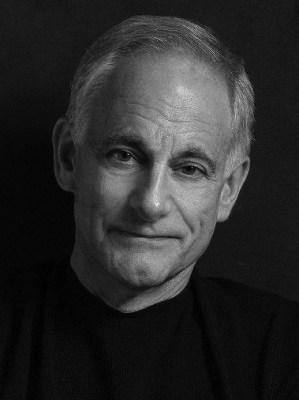

I had made plans months before to come to Venice for a few weeks in the off season in order to enjoy the city without the crush of other tourists. As it happened, the timing of my visit was purely coincidental. BERENDT: (Reading) `The air still smelled of charcoal when I arrived in Venice three days after the fire. SIMON: So I'd like you to read a section, and this section talks about when you first arrive at Venice three days after the Fenice opera house fire. And the mayor even said, `We must rebuild the Fenice to prove to ourself and to the world that we're a living city.' So Venice had to realize right away that, `We are a dying city if we don't have the performing arts-a place to have the performing arts.' And so they were desperate to rebuild the Fenice and be a living city. There were no major stages for theatrical performance of any kind. When the Fenice burned in 1996, there were no opera houses left. At one time in the 19th century, Venice had 12 opera houses all operating at the same time. And when it burned, the only opera house extant in Venice disappeared. My book centers around the burning of the Fenice opera house. If something isn't decaying-it's lasted for 500 years, so how can say it's decaying? Yes, it's aging. the people who say, `Look, this is a living city. the ranchers seems to be the preservationists vs. SIMON: At the heart of your book-and we certainly want to talk about some of this collection of characters if we can-but at the heart of your book seems to be an ongoing Venetian version of the farmers vs. And it is a feeling that you have wherever you look. And you really do feel as though you're in the middle of some play, some drama. BERENDT: Well, later, yes, he said, `Well, when I told you I was telling you the opposite of what I meant.' But as Mary McCarthy says, everybody thinks they're the first to notice that the buildings all look like painted stage sets.

SIMON: Including what he was saying to you then, I gather. `We mean precisely the opposite of what we say.' Well, part of that was charm. Venetians never tell the truth,' he said. Count Girolamo Marcello said to me, `Everyone in Venice is acting.

SIMON: You were warned that everyone in Venice is acting, weren't you? JOHN BERENDT (Author): Pleasure to be here. Berendt's new book is called "The City of Falling Angels." And John Berendt joins us from our studios in New York. John Berendt's new book is out, 11 1/2 years after his last best-seller, "Midnight in the Garden of Good and Evil." This time the ancient, intoxicating, infuriating and irreplaceable city of Venice is the main stage for an astounding array of characters, who are by turn eccentric, outrageous, intriguing and precious in both the best and worst ways.


 0 kommentar(er)
0 kommentar(er)
